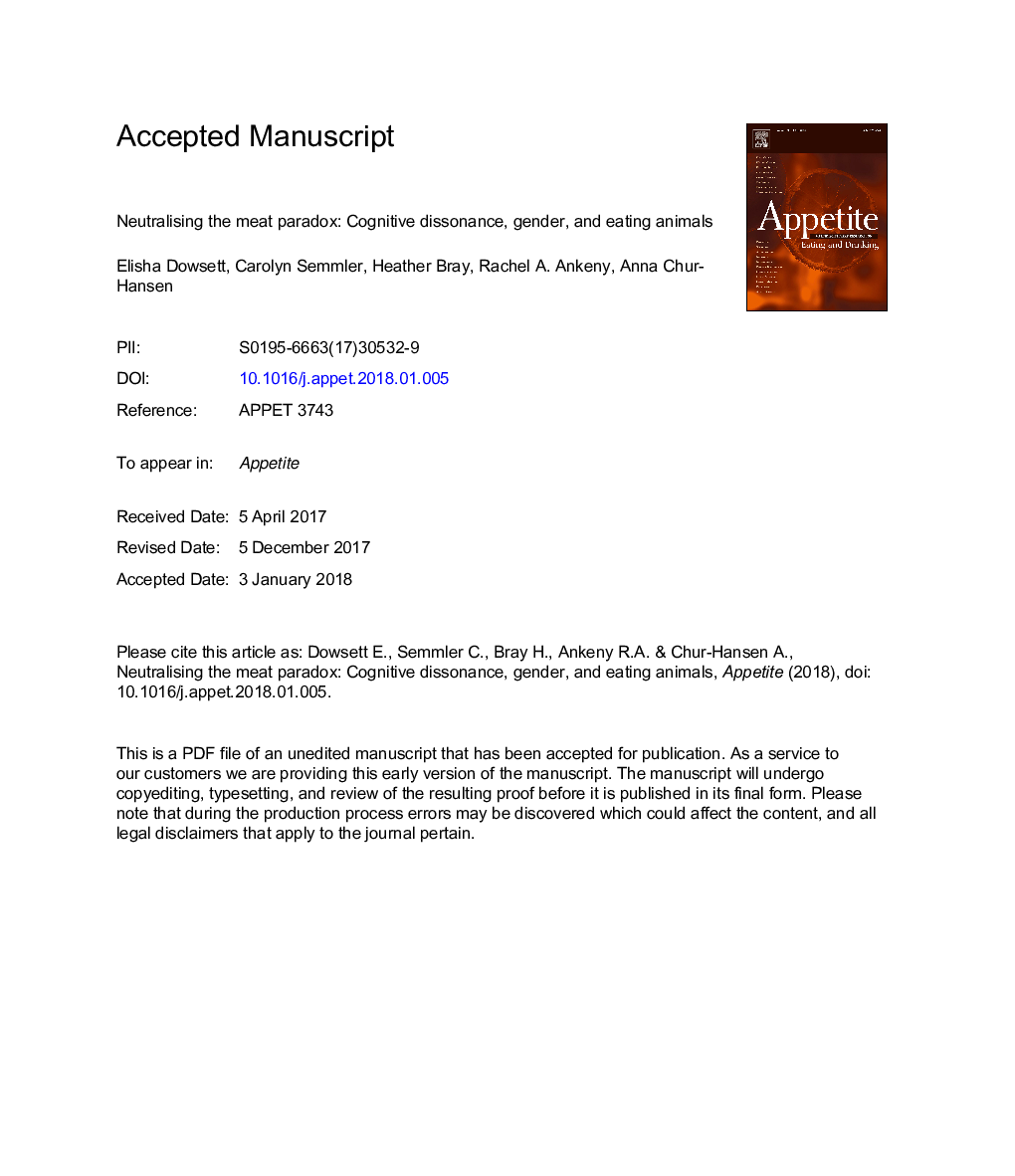| Article ID | Journal | Published Year | Pages | File Type |
|---|---|---|---|---|
| 7306155 | Appetite | 2018 | 33 Pages |
Abstract
Meat eating is a common behaviour, despite many people claiming to like, love, and care about animals. The apparent disconnection between not wanting animals to suffer, yet killing them for food, has been termed the 'meat paradox.' In this experimental study (Nâ¯=â¯460), participants completed pre-affect, post-affect, meat attachment, and attitude towards animals questionnaires, under two conditions: exposure to the life of an Australian meat lamb, and information about the nutritional benefits of meat. A factorial MANOVA revealed that negative affect was significantly greater when participants were exposed to the meat-animal connection; however, more entrenched attitudes towards animals and attachment to meat remained unaffected. Significant gender effects were found across all variables: most notably, meat attachment differed according to gender, decreasing in women and increasing in men when exposed to the meat-animal condition. Open-ended responses were subjected to content analysis to understand participants' future meat-consumption preferences and accompanying reasoning strategies. Findings from the present study contribute to understanding how cognitive dissonance and inconsistencies are rationalised by meat consumers.
Related Topics
Life Sciences
Agricultural and Biological Sciences
Food Science
Authors
Elisha Dowsett, Carolyn Semmler, Heather Bray, Rachel A. Ankeny, Anna Chur-Hansen,
